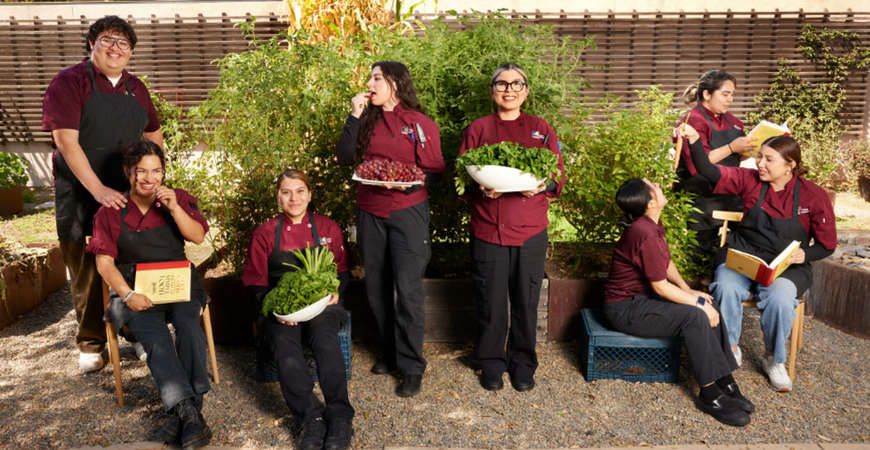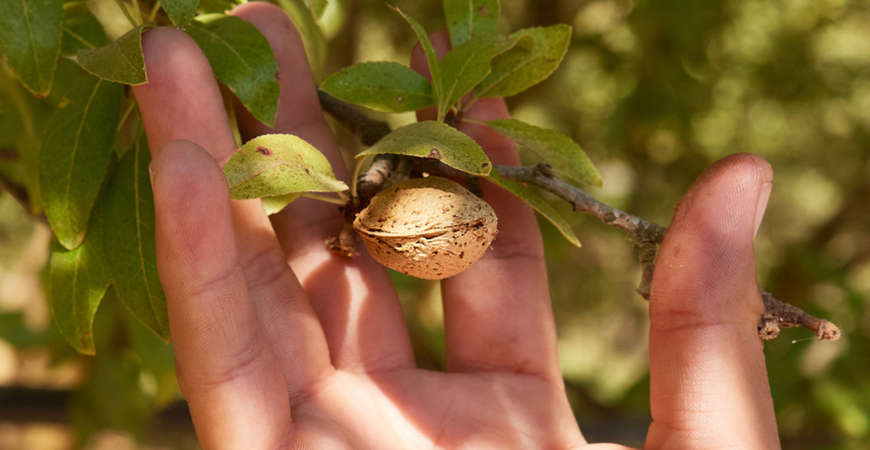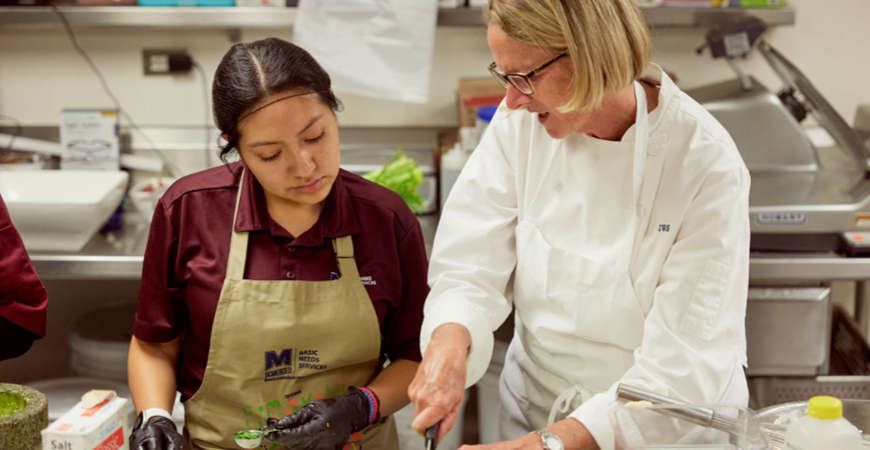
Student employees in UC Merced’s dining centers got an up-close look at the sustainable techniques at a family almond farm and were challenged to create locally sourced dishes as part of a workshop inspired by an internationally famous chef. The workshop was presented by the Alice Waters Institute for Edible Education in collaboration with UC Merced Executive Chefs Anthony Pangelina and Mitchell Vanagten.
The institute is an academic offshoot of the Edible Schoolyard Project that Waters, founder and owner of Chez Panisse restaurant in Berkeley, created in 1995. The institute was launched in 2020. Waters is often credited with popularizing the farm-to-table movement, which promotes the advantages of sustainable, organic agriculture and connecting people with the sources of their food.
On a warm day in September, Dining Services student employees visited Burroughs Family Farms in Denair. The participants were kitchen student managers, responsible for food preparation, inventory and inspections in the Pavilion and Yablokoff-Wallace Dining Center. They learned about the advantages of regenerative farming and cooking with local, seasonal ingredients.

Benina Montes led the tour with husband Heriberto. Together, they manage the operation, which began as a small dairy operated by Montes’ ancestor, Benjamin Burroughs, in 1906.
Burroughs Family Farms is the first almond farm in the world to be certified as regenerative organic by the Regenerative Organic Alliance. Their products also include almond butter, almond milk, olive oil and eggs.
The farm’s sustainable methods are based on some main principles:
· Keep the soil covered
· Maintain a high level of biodiversity
· Integrate livestock
· Minimize tilling
· Never use synthetic pesticides, herbicides or fertilizers
Between the rows of almond trees are plantings of rosemary, butterfly bush, deer grass and lavender. They improve soil health by maximizing water retention and allow chickens and sheep to graze the orchard and provide natural fertilizer.
“I was surprised to learn how regenerative organic farming keeps the land covered in mulch year-round to return nutrients to the soil,” third-year student Diego Regalado said. “It gave me a new perspective on farming and how it’s not only about growing crops, but also about nurturing the land itself."

Another part of the workshop took place at the Yablokoff-Wallace Dining Center. Jennifer Sherman, culinary director for the Alice Waters Institute, led the students through an engaging discussion about the importance of cooking with in-season ingredients. The students were then divided into three groups and tasked with creating a dish using local produce. One group prepared roasted chicken legs with homemade barbecue sauce, cabbage-apple slaw with cider vinegar dressing, and cornbread. Another group made butternut squash tacos with avocado salsa and a fig salad with homemade ranch dressing. The third cooked coconut-roasted sweet potatoes with Thai sauce and eggplant caponata.
“It was cool to see how farming has been in the Burroughs family for generations, and how using mulch and staying pesticide-free really helps the plants,” student Kimberly Flores said. “I also learned some super helpful cooking techniques and tricks that I can’t wait to use in my own work,” said student kitchen manager Kimberly Flores.
Pangelina and Vanagten challenged the students to create recipes using the knowledge and experience from the workshop. The chefs said top three dishes will be featured in both dining centers.
Brenda Ortiz

Senior Public Information Representative
Office: (209) 228-4203
Mobile: (209) 628-8263






